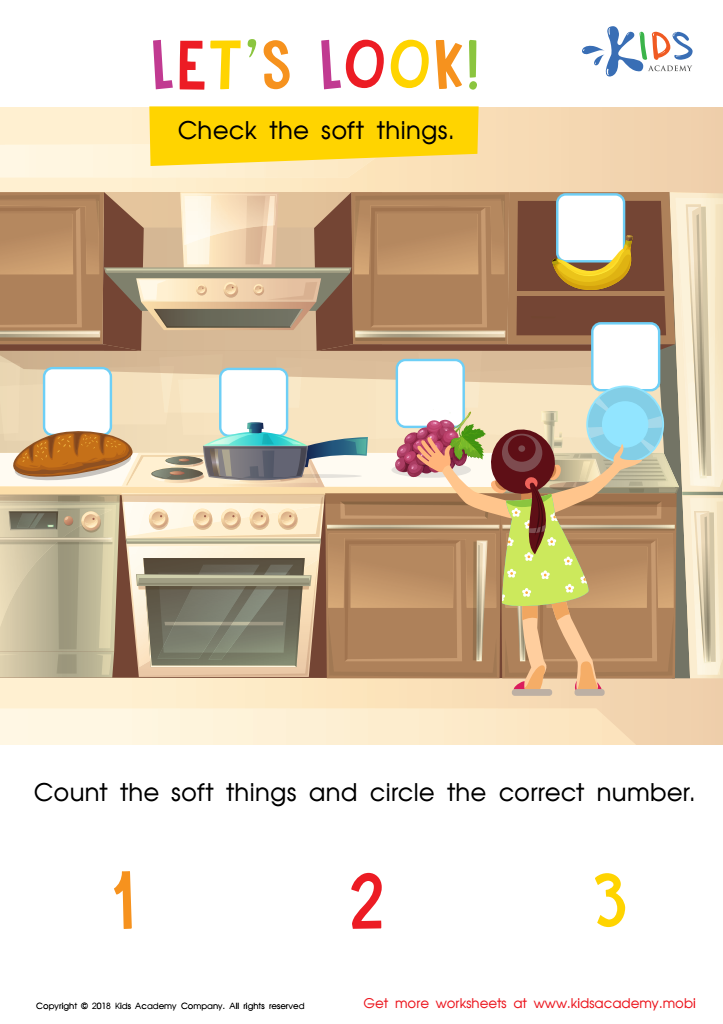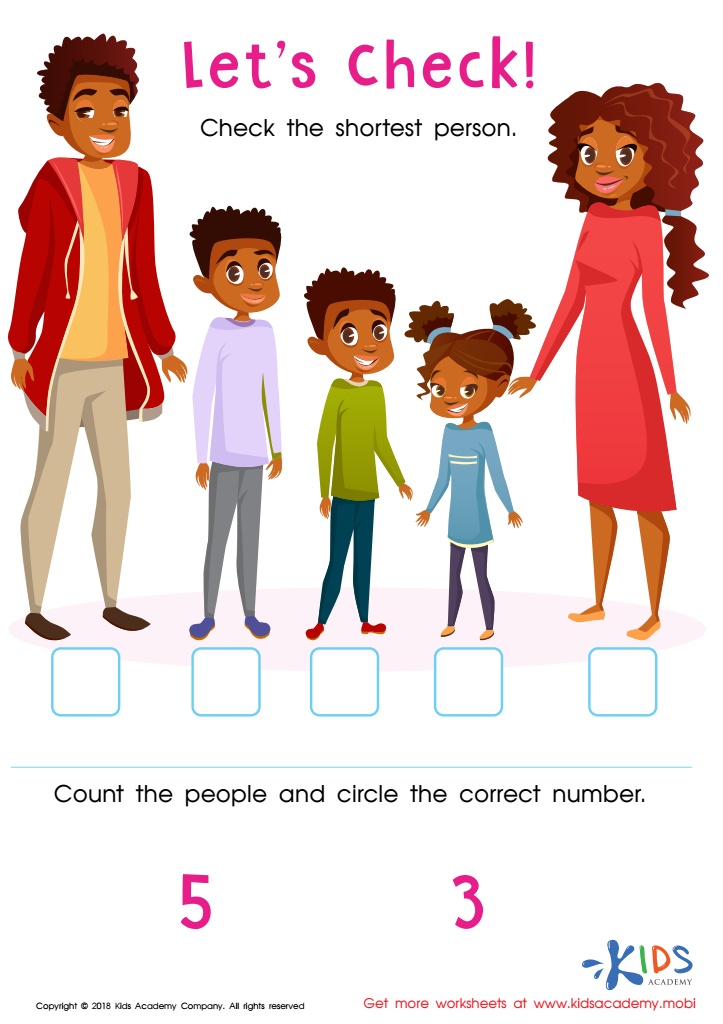Counting skills Normal World Around Us Worksheets for Ages 4-7
3 filtered results
-
From - To
Enhance your child's numerical abilities with our "Counting Skills in the Normal World Around Us" worksheets designed for ages 4-7. These engaging, printable activities incorporate real-world scenarios to make counting fun and relevant. Each worksheet features simple counting exercises, vibrant illustrations, and interactive questions to ensure learning is enjoyable and effective. Perfect for both classroom and home use, these resources dramatically aid early math development, fostering a love for learning. Dive into our creative worksheets and watch your child’s counting skills grow naturally through everyday adventures! Suitable for beginners, advanced counters, and all learners in between.


African Wildlife: Giraffe Worksheet


Let's Look! Assessment Worksheet


Let's Check! Assessment Worksheet
Counting skills are fundamental for children aged 4-7 as they form the foundation for future mathematical learning and everyday activities. Parents and teachers should emphasize the importance of counting because it enhances cognitive development by improving a child's memory, attention to detail, and logical thinking. These skills are not just isolated to numbers; they enhance a child's ability to understand sequences, patterns, and relationships, which are critical in almost all subjects and aspects of life.
In the normal world, counting helps children in practical daily activities. For example, measuring ingredients for a recipe, counting the number of apples in the grocery store, or setting the table for meals all involve basic counting skills. These real-world applications help children see the relevance of what they learn in school and promote independence.
Moreover, mastering counting fosters confidence and a sense of achievement in young learners. When children successfully count objects or perform simple mathematical tasks, it boosts their self-esteem and encourages a positive attitude toward further education. For parents and teachers, it's crucial to create engaging and interactive counting activities to maintain children's interest and enthusiasm. This solid early foundation in counting ensures that children are well-prepared for more complex mathematical concepts in later years.
 Assign to My Students
Assign to My Students




















